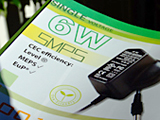
Directive 2009/125/EG of the European Parliament and of the Council of October 21st, 2009 to create a framework for the setting of ecodesign requirements for the ecofriendly design of energy-using products (ErP Directive) replaces Directive 2005/32/EC of July 6th 2005 (EuP Directive) and is commonly also referred to as the Ecodesign Directive.
The coming into effect of the European Ecodesign Directive calls for comprehensive action by manufacturers and retailers, including those in the ICT, electrical engineering and electronics branches.
Examples of game-changers include minimum efficiency requirements for power supplies, the average power consumption of products in various operating states (network standby, standby/off) and product-specific energy-efficiency labeling, as had already been developed for televisions as part of the Ecodesign Directive.
Fraunhofer IZM is an established contact for both industry and policy on questions regarding the Ecodesign Directive. By participating in numerous preparatory studies (TREN Lot 4, TREN Lot 5, TREN Lot 6, TREN Lot 7, TREN Lot 18, ENTR Lot 5, ENER Lot 26) Fraunhofer IZM gathered comprehensive know-how in environmental analysis and assessment of the existing products, electronics/IT-specific technology trends and socio-economic factors in competition.
We can help you prepare strategically for the forthcoming requirements and help you implement ecodesign solutions effectively.
 Fraunhofer Institute for Reliability and Microintegration IZM
Fraunhofer Institute for Reliability and Microintegration IZM